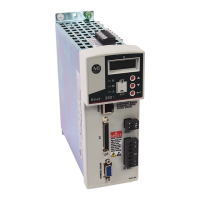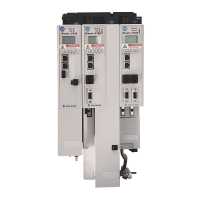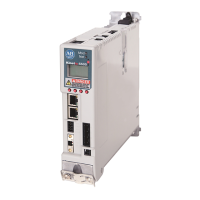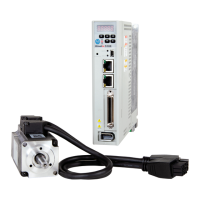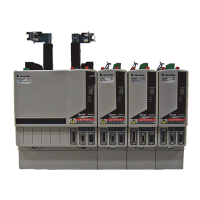84 Rockwell Automation Publication 2094-UM001J-EN-P - March 2017
Chapter 5 Connect the Kinetix 6000 Drive System
Building Your Own Cables
Follow these guidelines when building cables for compatible motors and
actuators:
• Connect the cable shield to the connector shells on both ends of the
cable with a complete 360° connection.
• Use twisted pair cable whenever possible. Twist differential signals with
each other and twist single-ended signals with the appropriate ground
return.
Refer to the Kinetix Motion Accessories Technical Data, publication
KNX-TD004
, for low-profile connector kit, drive-end (mating) connector kit,
and motor-end connector kit catalog numbers.
Routing the Power and Signal Cables
Be aware that when you route power and signal wiring on a machine or system,
radiated noise from nearby relays, transformers, and other electronic drives can
be induced into motor or encoder feedback signals, input/output
communication, or other sensitive low voltage signals. This can cause system
faults and communication anomalies.
Refer to Electrical Noise Reduction on page 34
for examples of routing high
and low voltage cables in wireways. Refer to the System Design for Control of
Electrical Noise Reference Manual, publication GMC-RM001
, for more
information.
IMPORTANT This section contains common PWM servo system wiring configurations,
size, and practices that can be used in a majority of applications. National
Electrical Code, local electrical codes, special operating temperatures, duty
cycles, or system configurations take precedence over the values and
methods provided.
IMPORTANT Factory-made cables are designed to minimize EMI and are recommended
over hand-built cables to optimize system performance.
Building your own cables is not an option for the hybrid and network cables
used in Kinetix 6000M integrated drive-motor systems.
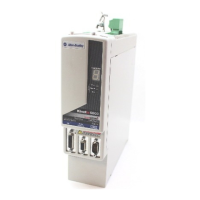
